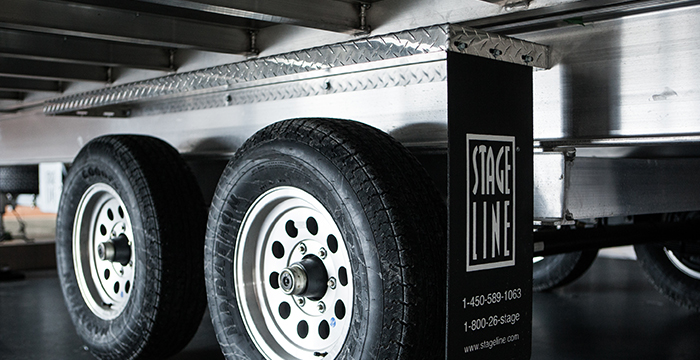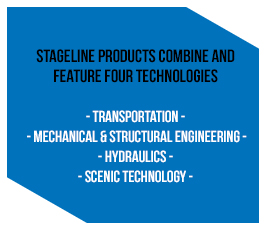October 27, 2016
END OF THE SEASON
A Stageline mobile stage is equipment that combines the performance and durability of a heavy machinery vehicle with the range and high performance of a portable staging rig. It can do a lot, and it always does. But that means every season has a much greater impact on a Stageline stage than it would on a trailer, or on a stationary stage set-up. When the season ends, a stage that does twice as much will still need only basic care and attention.
The season is coming to its end for a lot of us now, whether the stages are big or small. As autumn closes in on the Northeast in particular, many Stageline stages will soon be on their way indoors or into storage. That means that this is the time of year to profit from the opportunity to abide by the best practices in the upkeep of your Stageline mobile stage. Because these stages have multiple applications, they require multiple types of maintenance, and skimping on one will eventually affect all the others down the road. You owe it to a stage that’s designed to go the extra mile to return the effort when it comes to end-of-season care.
In order to renew your structural engineering certification, either Stageline or an independent firm will have to inspect the structure, trailer, hydraulics, and scenery gear of your mobile stage. As you prepare for that inspection, you’ll have to work through your inspection checklist as always. An inspection by your technicians who deploy the stage all summer is a great way to get a general idea of how your stage is doing overall, and how much work it may need in particular areas where potential problems are brewing.

Many elements such as stage equipment, motors and hydraulics have to be on your checklist at the end of the season.
There’s also the question of where you used the stage—did you do shows on beaches or in sandy environments? That means the possibility of grit or dust in the hydraulics might be a consideration. Did you spend the season in a very dry climate? Did you have a slower season than you were hoping to? In both cases, it’s important to make certain all your hydraulic joints haven’t dried out. On the other hand, if you had a busy season—that’s a good thing, and not just for your revenues, since your hydraulics will thank you for it! However, a busy season can also mean that rolling elements like wheels, axles, brakes, and bearings have received more wear than usual. Look at all these elements, which you will need to do anyway in order to renew your DOT documents. Frequent use of your gear also raises the likelihood that small parts like pins, bracing, and locks may have been lost and need to be reordered. A solid inventory then becomes crucial.
There’s no doubt about it: giving your Stageline mobile stage the care it deserves takes a bit of work, but don’t forget, that stage worked hard for you all season and with the right TLC leading into its engineering inspection, it will be ready to do it all again next year. Treat a Stageline stage right, and it will repay you with hundreds of great events down the long road ahead.
Happy end to the season!


